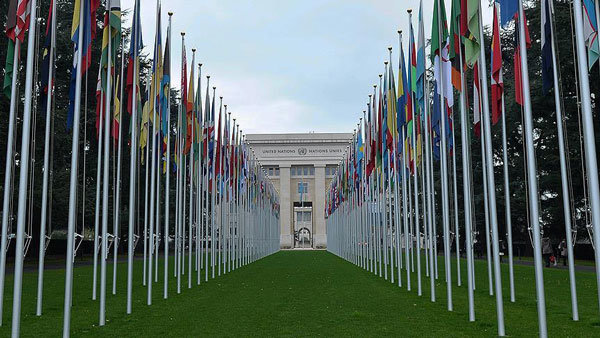Is Assad the problem?

TEHRAN- President Obama may be willing to, as he was enough to forge the nuclear deal with Iran, win praise for ending the Syrian crisis, the deadliest in the seven past decades. But, how one could trust in Barack as he is under the gun from at least two fronts: opponents of the nuclear deal with Tehran and foreign policy grumblers who are tired of Obama’s passivism.
Yet, a third dimension is Obama feeling like an outgoing president in his last office months. “In just six short months, I will be officially a lame duck, which means Congress will now flat-out reject my authority. And Republican leaders won’t take my phone calls,” Obama said at the White House Correspondents’ Association Dinner.
In the U.S., there are many like Senator John McCain of Arizona waiting for the 44th U.S. president to move out of the White House. And outside the situation is no better: international and regional allies of the U.S. have mixed feelings of indifference and wrath toward Barack.
Last week, Secretary of State John Kerry headed to Geneva, hopeful of working out a solution to save the February 26 ceasefire, brokered by Washington and Moscow, between the Syrian government and the armed opposition groups. However, Russian Foreign Minister Lavrov was conspicuous by his absence.
The Kremlin’s decision not to attend the negotiations was interpreted by many political cliques as sign of Moscow’s dissatisfaction with regional developments and actions of the armed opposition groups and their supporters in Aleppo. Or contrariwise, it may be the other side of the coin, the mighty Russia. As a senior French diplomat told De Mistura privately, it is quite clear Russians have a feeling of superiority over the whole Middle East from the heights of Damascus and probably they are entitled to feel so.
The remarks by the French diplomat not so vaguely refer to the negligible role played by the U.S. in Syria as compared to that of Russia. Kerry keeps highlighting the importance of a cooperative Russia. But, can he say anything else? Secretary Kerry is well cognizant of the fact that Russians’ reading of the U.S. role borders almost on that of allies already annoyed by Obama’s passive foreign policy.
Some Russian media outlets have quoted from Kremlin’s representative in Syrian talks Vitaly Naumkin as saying: “Kremlin, considering its understanding of President Obama’s policies, is not so reluctant to strike a deal with the U.S. But in a clear and bothering diplomatic paradox, the successful and shaky negotiations which brought about the February 26th ceasefire or the agreement to continue the ceasefire in Aleppo and ending the war in it are more based on diplomatic agreements and procedures rather than binding and definitive agreements. The problem is the murky future not Obama’s goodwill or wish.”
It should be admitted that a binding agreement with the outgoing Obama administration does not seem logical neither for Moscow nor for U.S. regional allies. Whoever and with whatsoever attitude the next U.S. president is, it certainly won’t be another Obama. Irrespective of whether this is the right interpretation, all players in the Syrian game believe so. Even De Mistura is well aware of this but does his utmost to keep alive the February 26th ceasefire. He may make it or not. For the time being, the future looms large and Saudis are beating the war drum.
Just as sitting in the San Diego-bound-to Redwood City stagecoach was once chillingly dangerous, making the cheap trip so worthless, so is uniting with President Obama.
Disappointed, but perhaps De Mitsura, among other diplomats, is the only one we should keep our fingers crossed for his success. Amen!
